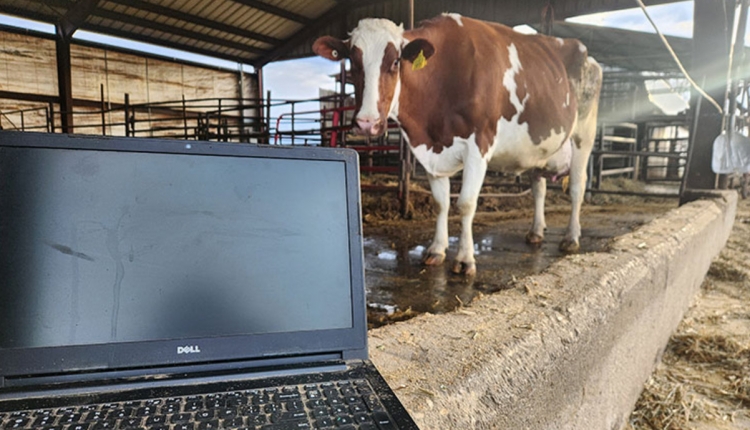Nutrition labels have been mandatory in their current form in the United States since 1995. We see them on nearly everything we buy with information in at least 15 different categories. But should there be more labeling on our food?
As you'll read in the June issue of Hoard's Dairyman, activists in California have gathered 971,126 signatures for an initiative related to GMOs this November. If the initiative passes, all foods sold at retail outlets (but not restaurants) produced with genetic engineering would need to be labeled as such. In an article about the cause, the Sacramento Bee cited a March 2012 poll that showed 9 in 10 American voters agreed with labeling genetically engineered products.
As I was driving yesterday, Minnesota Public Radio had a program on the subject. You can listen to it in full here: http://minnesota.publicradio.org/display/web/2012/06/11/daily-circuit-labeling-gmos-food/
As with many radio shows, the discussion had two people on polar opposite sides. Yesterday's show featured Greg Conko (opposed to labeling) of the Competitive Enterprise Institute and Gary Hirshberg (wants labeling), founder of Stonyfield Farm, an organic yogurt company.
What was interesting to me was that Hirshberg admitted there were no current health concerns, but also cited the poll that 90 percent of Americans wanted labeling. Calling to the free market mantra, Hirshberg would say, "Let the market decide." Looking at the poll, he thinks the market is in his court. He also presented a petition to FDA on the issue.
Meanwhile, Conko explained again and again that the science behind GMOs did not introduce any new risks. The expedited gene splicing and insertion could also happen in nature. For this reason, GMOs have been deemed safe by the U.S.'s scientific and governmental bodies.
So the real question is, with about 80 percent of crops GMO already, what good is the label going to do? Marketers know that often polling doesn't always reflect a real-life scenario. In other words, if you ask someone what they would do or want in a certain situation, people often do the opposite if the situation actually arises.
Callers were also split down the middle. Pro-labeling callers simply wanted more information. Anti-labeling callers thought this would be a scare tactic - similar to what happened with irradiated beef. But where the chips fall is up to everyone involved in our political process. Where do you stand?
As you'll read in the June issue of Hoard's Dairyman, activists in California have gathered 971,126 signatures for an initiative related to GMOs this November. If the initiative passes, all foods sold at retail outlets (but not restaurants) produced with genetic engineering would need to be labeled as such. In an article about the cause, the Sacramento Bee cited a March 2012 poll that showed 9 in 10 American voters agreed with labeling genetically engineered products.
As I was driving yesterday, Minnesota Public Radio had a program on the subject. You can listen to it in full here: http://minnesota.publicradio.org/display/web/2012/06/11/daily-circuit-labeling-gmos-food/
As with many radio shows, the discussion had two people on polar opposite sides. Yesterday's show featured Greg Conko (opposed to labeling) of the Competitive Enterprise Institute and Gary Hirshberg (wants labeling), founder of Stonyfield Farm, an organic yogurt company.
What was interesting to me was that Hirshberg admitted there were no current health concerns, but also cited the poll that 90 percent of Americans wanted labeling. Calling to the free market mantra, Hirshberg would say, "Let the market decide." Looking at the poll, he thinks the market is in his court. He also presented a petition to FDA on the issue.
Meanwhile, Conko explained again and again that the science behind GMOs did not introduce any new risks. The expedited gene splicing and insertion could also happen in nature. For this reason, GMOs have been deemed safe by the U.S.'s scientific and governmental bodies.
So the real question is, with about 80 percent of crops GMO already, what good is the label going to do? Marketers know that often polling doesn't always reflect a real-life scenario. In other words, if you ask someone what they would do or want in a certain situation, people often do the opposite if the situation actually arises.
Callers were also split down the middle. Pro-labeling callers simply wanted more information. Anti-labeling callers thought this would be a scare tactic - similar to what happened with irradiated beef. But where the chips fall is up to everyone involved in our political process. Where do you stand?









